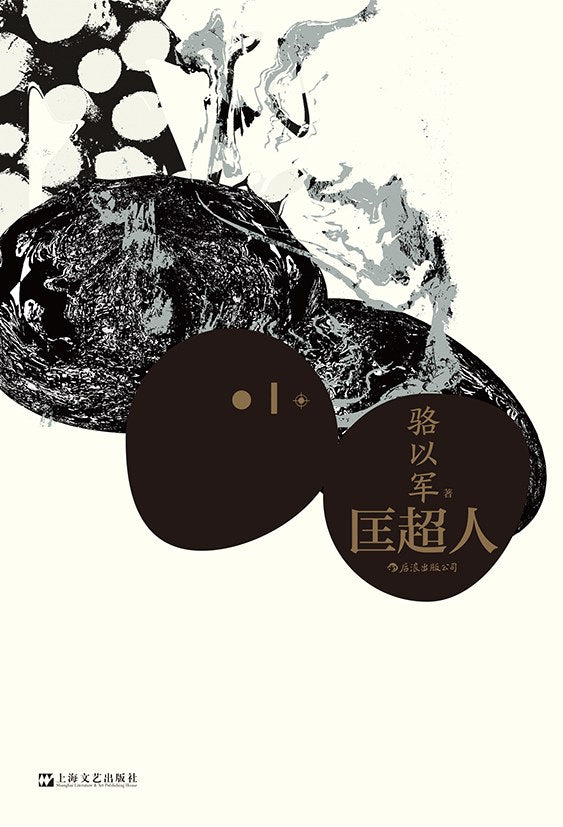WULOLIFE
《匡超人》 作者: 骆以军 出版社: 后浪丨上海文艺出版社
《匡超人》 作者: 骆以军 出版社: 后浪丨上海文艺出版社
Couldn't load pickup availability
Description
内容简介· · · · · ·
当代华文文坛重磅作家 小说战神骆以军突破之作
✈ 编辑推荐
◎骆以军是台湾当代重要作家,作品主题常是现代都市中人们不堪为外人道的受伤、废弃、情欲、死亡叙述,插科打诨文字内核是对于世间荒谬的奋力挣扎。他的修辞风格华丽繁复耐人寻味,使人读着 重构了我们对这个时代生命的感觉模式。
◎ 《匡超人》是体现了骆以军的圆熟书写经验及丰沛创作力的集大成之作,是骆以军继《西夏旅馆》 《女儿》两部代表作之后,在生涯创作高峰期接连写出的第三部巨作,并以此书获得多个重磅奖项。
◎ 《匡超人》以《儒林外史》中原本才气德行兼具最终却沦为汲汲于名利的市侩小人匡超人为书名,从个人身体的尴尬破口作为现代人精神坏损的隐喻,写到《西游记》的齐天大圣孙悟空穿越到当代世界的无力与无奈,带领读者通阴冷的黑洞深渊。
✈ 内容简介
《匡超人》是台湾重量级小说家骆以军继《西夏旅馆》《女儿》之后,又一创作巅峰。作者以天马行空的想象力,漫天花雨、诙谐逗乐的文笔,运用《西游记》原先桀骜不驯最终却泯然众人的孙悟空、《儒林外史》中蝇营狗苟的文人形象等元素的拼贴、糅合、拟仿,构筑成了一个充斥破洞、黑洞的奇异小说世界。他浓郁的哀伤笔调,写出当代知识分子的种种犹如被设定好的,力逃脱的存在姿态。
✈ 名人推荐
骆以军以其强大的叙事引擎与绵密如病毒的语言,自《西夏旅馆》《女儿》《匡超人》,其所繁衍的“骆以军崩坏体”至此修炼完备。“一直被辜负的”美猴王历经西不仅脱离如来掌,甚且是“飞出去了”。
——第五届联合报文学大奖颂词
《匡超人》展演了骆以军“想想”台湾和自己身体与创作的困境,但之后呢?小他运用科幻典故,企图七十二变,扭转乾坤……我们仿佛看见的横眉冷眼,摆着祖师奶奶(张爱玲?)华丽而苍凉的手势,揣着他独门的受伤鸡鸡,走向台北清冷的冬夜街头。
——美国哈佛大学讲座教授 王德威
是故事之神,这次他走出了《女儿》的晦涩艰难,写出一种腾云驾雾时间感、千变万化的畅快,确实如他所那个才是骆以军。
——小说家陈雪
骆以军拆卸小说的舞台,让小说成为从材料到故事的一帧帧动态分割。对“文明”的感伤有了一个极为骆以军的口吻——我知道这是徒劳的,但我还是想试图,在全部都坏毁以前多待...重新浮现——变造《西游记》情节桥段,使那四个取经的倒楣师徒,既在现世、又在故事。
——小说家萧钧毅
告别以造字兴建的《西夏旅馆》,依量子力学造人的《女儿》,骆以军接续以造/凿洞劈破故事入口。
开篇的《俄罗斯餐厅》或可视为此作隐藏版的序言,提供了阅读整部作品的微型结构。诚如小说所言,餐厅是“时空转换的旋转门”,它把外部的世界向内折入,把现世翻折成奇幻意象的俄罗斯套娃结构。
——文学评论者潘怡帆
《匡超人》是滤过性病毒,自己会长,是昨晚没有回家的男友开口对你说的第一句话, “一旦开始说谎就停不下来”,但主要是,就我自己看,那就是变成一个“佬”的故事。
——作家 陈栢青
✈ 获奖记录
☆ 2020南都十大好书
☆ 第五届联合报文学大奖
☆ 2019 年台北书展大奖小说奖
☆ 2018 年 OPENBOOK 年度好書
作者曾获:
☆ 第三届红楼梦奖:世界华文长篇小说奖首奖
☆ 时报文学奖短篇小说甄选奖
☆ 台湾文学奖长篇小说金典奖
☆ 开卷年度十大好书、开卷年度好书
☆ 亚洲周刊中文十大好书
☆ 台湾省巡回文艺营创作奖小说奖
☆ 读书人年度十大好书
☆GQ2020年度作者
作者简介· · · · · ·
骆以军,专职作家,1967年生于台北,文化大学中文系文艺创作组、艺术学院(现台北艺术大学)戏剧研究所毕业。曾获第三届红楼梦奖世界华文长篇小说首奖、第五届联合报文学大奖、台湾文学奖长篇小说金典奖、学奖短篇小说首奖、联合文学小说新人奖推荐奖、台北文学奖等多项重要文学奖项。
著有《明朝》《也许你不是特别的孩子》《纯真的担忧》《计程车司机》《匡超人》《胡人说书》《肥瘦对写》(与董启章合著)《让我们欢乐长留:小儿子2 》《女儿》《小儿子》《弃的故事》《脸之书》《经济大萧条时期的梦游街》《西夏旅馆》《我爱罗》《我未来次子关于我的回忆》《降生十二星座》《我们》《远方》《遣悲怀》《月球姓氏》《第三个舞者》《妻梦狗》《我们自夜暗的酒馆离开》《红字团》等作品。
